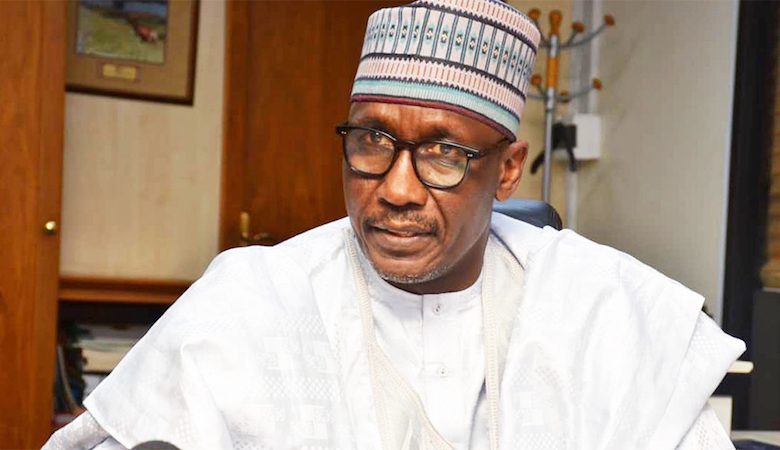
The Group Chief Executive Officer of the Nigerian National Petroleum Company Ltd, Mele Kyari, has stated that the price of Premium Motor Spirit (PMS), commonly known as fuel, will soon experience a significant decrease.
POLITICS NIGERIA reports that in an interview with Arise TV, Kyari explained the rationale behind the subsidy removal, which caused a surge in PMS prices in Africa’s largest economy.
According to Kyari, the removal of fuel subsidy will lead to increased participation in the importation of refined products, resulting in a more competitive market.
The NNPC Boss noted that the subsidy was initially scheduled to end in February 2022 but was extended until the first half of 2023 due to prevailing economic hardships.
However, he said the Nigerian government did not fund the subsidy; instead, the burden fell on the NNPCL, which has become unsustainable.
Kyari emphasised that the current prices at their stations reflect the prevailing market rates.
He highlighted the positive outcome of removing the subsidy, as it will attract new players to the oil market.
He said, “The prices we are seeing today at our station is the current market price of the commodity. What this means is that prices in the market can go down at any time and of course the market will adjust itself.
“The beauty of this is that there will be new entrants. Oil marketing companies have been reluctant to come into the market because there was a subsidy regime in place. And that subsidy regime does not have a guarantee of the payment of those who provide the product at subsidised prices.
“But now that the market regulates itself, oil marketing companies can actually import products or even it is produced locally they can buy and take into the market and sell it at their commercial prices.
“Therefore, you will see competition even with NNPCL. By the way, by law, NNPCL cannot do more than 30 per cent of the market going forward. As soon as the market stabilises, oil marketers begin to come in, which means that competition will surely come in and definitely the market will regulate the price itself.
“This is just an instantaneous price, in a week or two you will continue to see adjustments in different approaches. Competition will guide that but ultimately, you will see changes in price downwards and that is potentially very likely because efficiency will come in. Mind you, as we speak now, every burden of inefficiency, in the system from the marine all the way to fuel stations including oil marketing companies is borne by the subsidy regime but as soon as competition comes in, people will become more efficient in their depots, in managing their trucks so that people can come to their stations.
“This will regulate the market and the price on it will come down naturally and I don’t see any doubt about this. It is not a fixed price and we are not announcing any price. All we did was to see variable prices in our costs by location and by the realities around us and knowing fully well that the NNPC is the single supplier of the market today and we are seeing that exit coming up very quickly.
“There will be no monopoly, NNPCL will no longer be the only supplier of this product alone and therefore we see the comfort for the consumer and the moderation will come.”
Kyari further noted that higher prices would lead to reduced consumption, estimating a 30% decrease in fuel consumption.
This decrease in demand would also reduce the need for foreign exchange, benefiting all market players, including the NNPC.
He said, “I’m sure you must have heard what Mr. President said about exchange rate normalisation and that will simply mean a single exchange rate market for everyone. As we speak today, the NNPCL uses the official exchange rate which of course will now be subjected to the stabilisation of the FX that will be created by the announcement of Mr. President.
“Once that happens, everybody including the NNPCL will access the FX at the same exchange rate and of course you will see a gradual exit of the NNPC in the official exchange rate and of course, there will be a single market rate in which NNPCL will be subject to. So, I don’t see any conflict of the pricing of the FX going forward.”
He added, “I do not think so because this situation will also regulate consumption, Mind you, when you have higher prices, it will wage your consumption and that means the volume of the product you are going to require will come down. My estimate is at least 30 per cent of the volume of consumption will come down.
“I have continually said that there is no verifiable data today on the level of consumption in this country but we know our level of evacuation and that evacuation number will come down by 30 per cent and it also means a collateral decrease in the requirement of FX in the market.
“Therefore, the same source of FX that NNPCL has access to, all players in the market will also have access to it.
“I’m aware of ongoing engagements to ensure that everyone has access to the market that is the single window market. Once that happens, you will not see any spiral or significant change in prices. I do not see any fears around exchange rate impact on the price of PMS.”
Recall that President Bola Tinubu announced during his inauguration on May 29 that the Federal Government would no longer subsidise Premium Motor Spirit.
Consequently, the NNPC adjusted fuel prices, leading to an increase from N189-N194 to N537 per litre in Abuja and other North-Central states such as Nasarawa, Plateau, Kwara, Kogi, Benue, and Niger.
